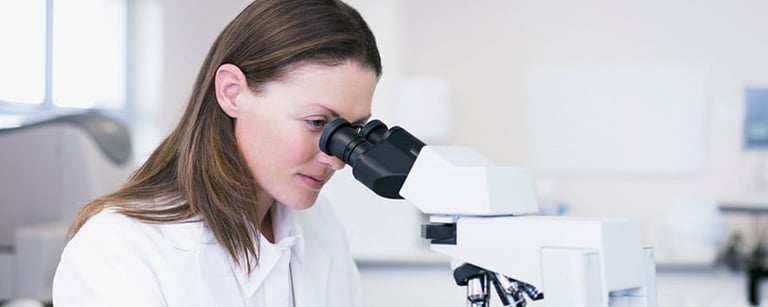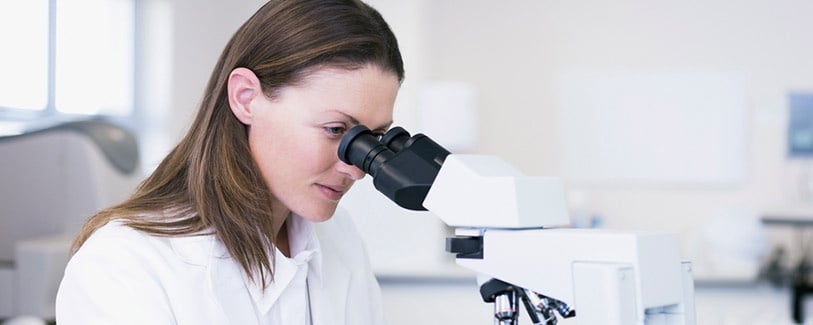
Making the decision to outsource your preclinical histopathology to a contract laboratory can deliver a myriad of benefits including: the assurance of regulatory compliance; timely and reliable results; and, perhaps most importantly, access to the most highly trained and experienced staff without the cost of hiring and training those individuals in-house.
Veterinary pathologists play a key role as team members contributing to drug discovery and safety. To ensure that the veterinary pathologist evaluating your study has the proper qualifications, be sure to ask the following questions:
1. Does the pathologist follow The Society of Toxicologic Pathology (STP) recommendations to ensure preclinical data generation is compliant with the Code of Federal Regulations (CFR), Volume 21, Part 58 (Good Laboratory Practices [GLP]) AND Part 11 (Electronic Records/Signatures)?
As digital imaging and data capture are heavily relied upon in preclinical pathology, it is essential that the study pathologist is familiar with STP recommendations including:
- Pathology images (printed or digital) used for data generation are raw data that must be authenticated and archived as such
- Authentication may be done by initialing and dating a print or by specific annotation of the electronic image file
- Raw data images are subject to GLP procedures and controls (e.g., Standard Operating Procedures (SOPs); testing/validation of equipment; training personnel)
Qualified veterinary pathologists will be accustomed to implementing these recommendations in GLP-compliant preclinical studies.
2. What is their background and are they ACVP certified?
Qualified veterinary pathologists will have completed a program that adheres to the requirements of The American College of Veterinary Pathology (ACVP). For the veterinary student interested in toxicology research; various specialty subjects will be included in the training program including pharmacology, general pathology, and histology.
Imparting aspiring veterinarians with the fundamentals of animal disease prevention, diagnosis and clinical therapy; these rigorous programs also include a clinical rotation, allowing students the opportunity to gain practical experience and apply their knowledge. This comprehensive foundation makes the veterinary pathologist uniquely qualified to make careful pathological assertions.
ACVP certification requires veterinary pathologists to pass a comprehensive examination, the goal of which is to determine whether the candidate is highly competent in various skills including recognition and description of histologic morphology, as well as pathogenesis associated with animal diseases.
The ACVP asserts that only “candidates who have mastered the basic abilities of recognition and interpretation of lesions that constitute the practice of anatomic or clinical pathology, and who have achieved thorough understanding of pathogenic mechanisms, are likely to be successful in the certifying examination.”
Due to the challenging nature of this elective accreditation, only the most qualified veterinary pathologists will become ACVP certified.
3. Does the veterinary pathologist have experience with the animal model and/or disease system?
Although this may seem like an obvious point, familiarity with the animal model and target system will provide the pathologist with the best perspective with which to make critical decisions about the underlying pathology associated with observed morphological changes. It is worthwhile to ask the contract veterinary pathologist about their specific expertise as well as that of the technical staff who will be handling your samples.
4. Is the contract pathologist approachable and responsive via telephone and/or site visits?
Perhaps the best indication of how well an individual veterinary pathologist will meet your unique study needs is to ascertain their level of commitment to working as a member of your team from the very start. Points to consider include:
- Is the individual easy to contact and communicate with?
- Do they take requests seriously and answer inquiries in a complete and professional manner?
- What do previous clients say about their interactions with the contracted professionals?
- Are your concerns addressed timely and professionally?
Optimizing interactions between study pathologist and CRO or sponsor should be a primary objective of both parties as it can have a real impact on the toxicological pathology results. Ensure that your contract pathologist makes effective and accessible communication a priority from day one.
5. Finally, does the pathology laboratory you have chosen have experience submitting audited reports from a validated software system?
The study pathologist is responsible for authoring the pathology report and should have full responsibility for its content. The report will be subject to analysis by the sponsor and possibly the FDA. It is vital to make sure these reports are accurate and that the pathologist’s interpretations are incorporated accordingly. Ask your contract pathology laboratory about procedures in place to audit and otherwise ensure delivery of quality pathology report.
Veterinary pathologists play a fundamental role in assessing the safety and efficacy of your toxicological research and it is therefore essential to ensure that they are qualified and up to the challenge.

